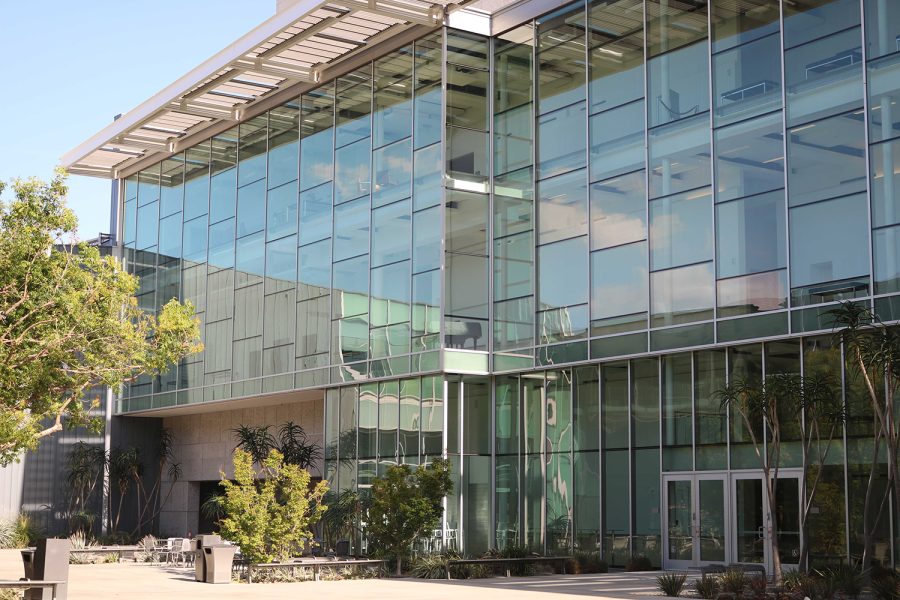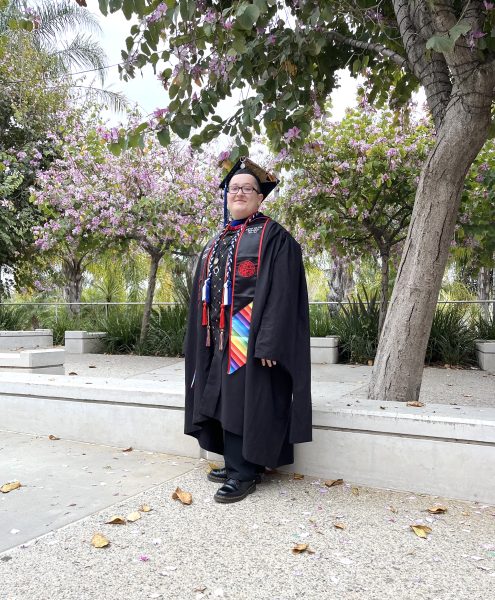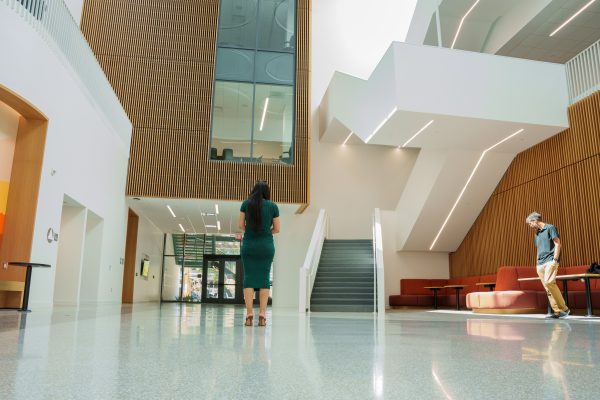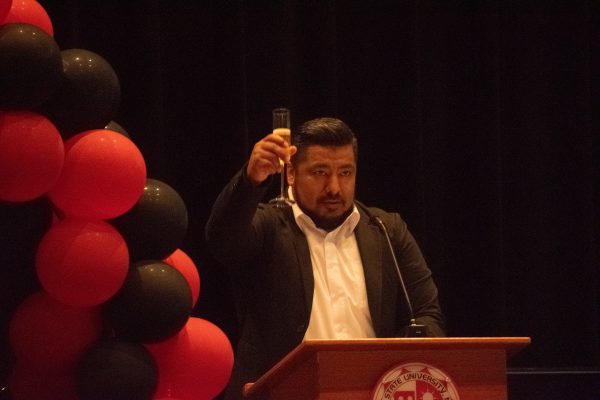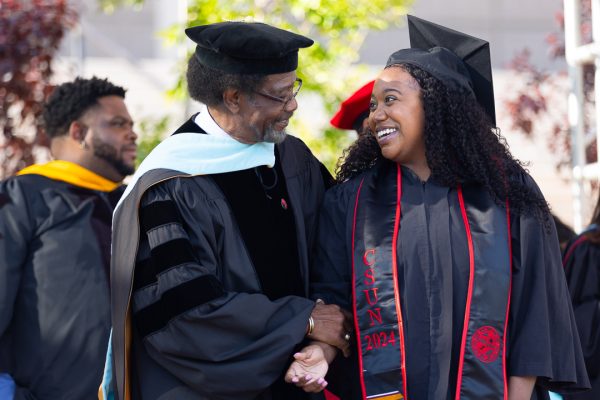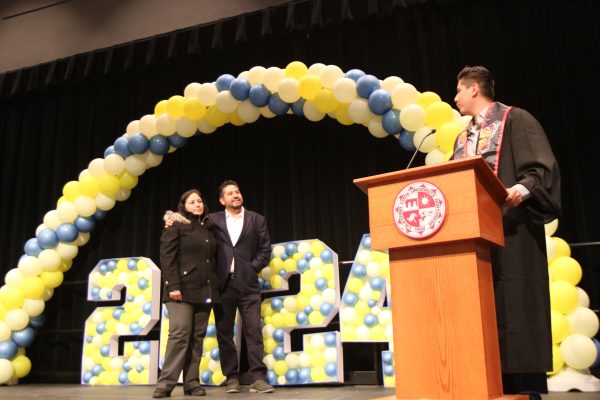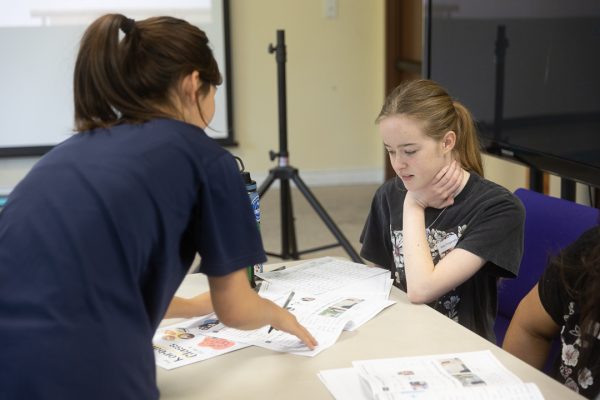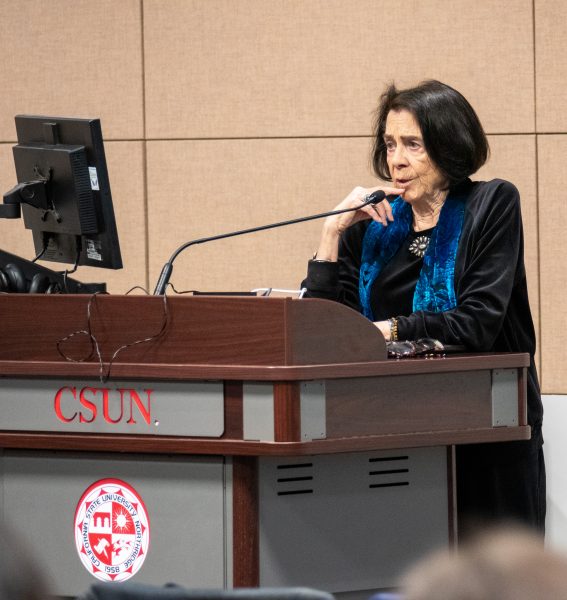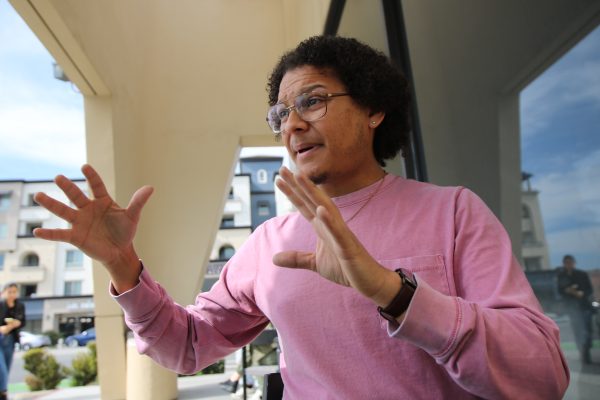CSUN prepares for next big earthquake
Photo of The Soraya on CSUN’s campus. The building is entirely made of glass.
May 19, 2022
The Daily Titan claimed that many California State University campuses are not ready for the next big earthquake, based on a series of audits conducted by the CSU system from 2016 to 2020. CSUN’s administrators, however, believe they are prepared.
CSUN’s audit was released in 2020 and it showed that the school’s emergency management program did not meet systemwide guidelines.
Once the audit was released, CSUN’s emergency manager Lisa Curtis said the school made changes to its emergency operations plan in order to ensure all of the guidelines were met by fall of 2020.
Curtis told the Daily Titan that the audit provided her with a more detailed observation of the areas where CSUN was lacking.
All employees must be familiar with the emergency and evacuation procedures in case of an earthquake, but the audit found that roughly 14% of new hires did not attend orientation or complete the necessary training.
In response to this, CSUN’s emergency management program created new ways to enforce training, and ensure all employees are aware of the evacuation process. They are taught how to safely evacuate a building and how to properly support those who might have mobility issues or other special needs.
CSUN is also required to assign and maintain a current list of all building marshals — employees who assist with the evacuations during an emergency — in order to ensure every building is safe and adequately prepared. The audit revealed that there was a lack of marshals assigned to each building on campus.
Curtis addressed the shortage of marshals and planned on identifying better ways to keep record of them through the use of rosters.
All new hires are required to complete a mandatory online training in order to become part of the marshal program.
“We created an online training that is congruent to the other mandated training that new employees take when they’re hired,” Curtis said. “[It] is part of their learning modules, with an expectation [that they] complete it within six months.”
The Klotz Student Health Center staff also receives training in case there is a disaster that may require emergency medical services, which was something the audit outlined the school to address.
When asked about the systemwide policy that requires all campuses to test their evacuation processes at least once a year, Curtis said that CSUN was already doing that regularly before the audit.
“Those components were already in practice,” Curtis said. “They just needed to be put in written form within the plan.”
CSUN’s emergency management has made all the necessary changes by implementing their new guidelines, according to Curtis.
“I believe our campus is in a good position to respond to an earthquake,” Curtis said. “Our leadership and our emergency operation center staff test regularly, and we were actually activated for two years straight with the pandemic, which has really supported our ability to work collectively to respond to [the] immediate needs of the campus, as well as work alongside our partner agencies throughout Los Angeles and the state.”
